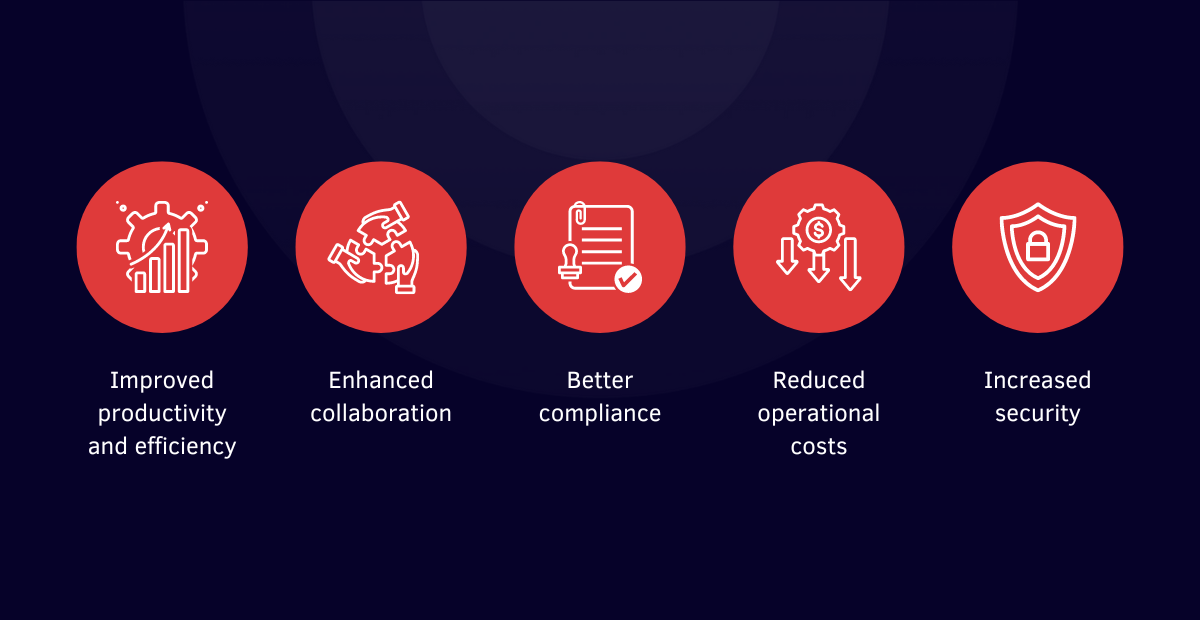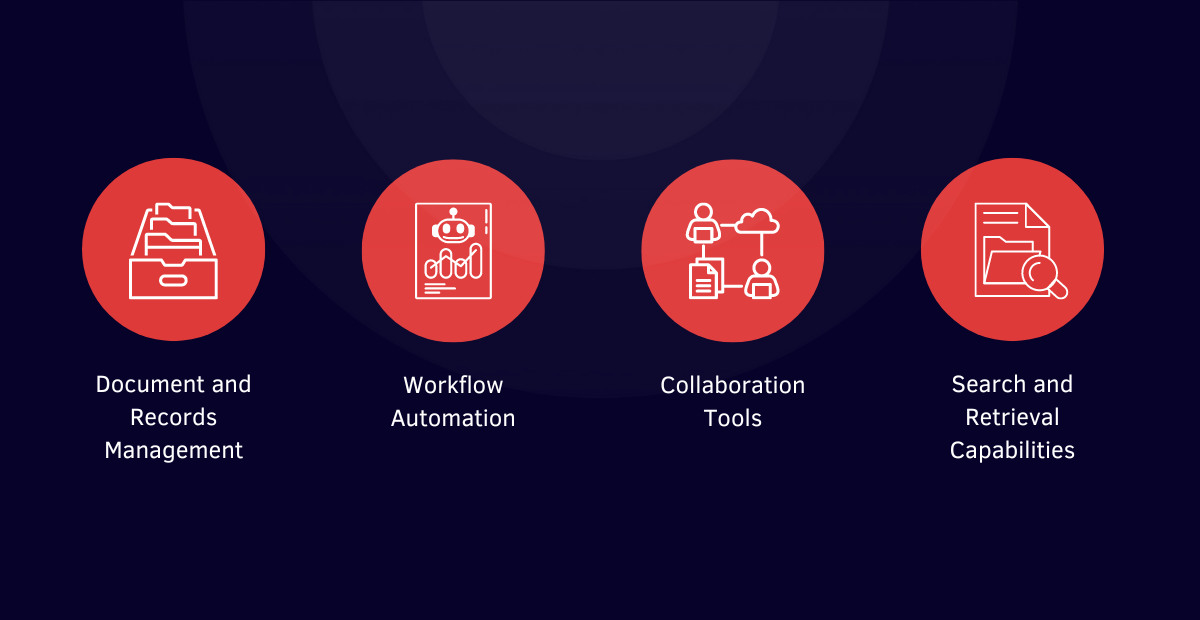5 Benefits of Enterprise Content Management (ECM)

Noticing bottlenecks in your day-to-day operations? Struggling to manage documents or files? All you need is a robust Enterprise Content Management software that collects, stores, and organizes data for you. From documents and emails to multimedia files and web content, managing this wealth of information efficiently becomes paramount, catering to organizational needs. As your business grows, it can become increasingly challenging to maintain and manage data ranging from client details to employee information. This is where ECM steps in as a comprehensive solution. ECM makes sharing and working with data much easier, facilitating teams to seamlessly collaborate on content.
What is ECM and What Does it Do?
Enterprise Content Management (ECM) encompasses the strategies, methods, and tools employed by organizations to capture, store, preserve, manage, and deliver content and documents related to their business processes effectively.
ECM significantly differs from a Document Management System (DMS). While a DMS primarily focuses on storing and organizing structured data, ECM extends far beyond that scope including document management, records management, workflow automation, collaboration tools, and information governance.
By centralizing content management, ECM empowers businesses to organize, secure, and streamline the flow of content throughout the organization. Whether it's structured data existing in a fixed format that can be dissected into parts, or unstructured data such as Word documents, PDFs, and scanned images, ECM caters to all content-related needs.
Benefits of ECM

Implementing ECM indeed offers numerous benefits to organizations, which include:
Improved productivity and efficiency: ECM streamlines workflows and provides faster access to information, reducing bottlenecks and expediting decision-making processes. Administrative tasks become more manageable, leading to a more efficient workflow.
Enhanced collaboration: By enabling easy access to shared documents and resources, ECM enhances collaboration and boosts productivity. Additionally, ECM reduces content duplication, further improving employee efficiency.
Better compliance: By ensuring proper documentation and compliance with industry regulations, ECM reduces the risk of penalties and legal issues, safeguarding the organization's reputation and integrity.
Reduced operational costs: ECM eliminates redundancies, minimizes errors, and optimizes resource utilization, resulting in significant cost savings for organizations. Additionally, by transitioning to digital storage and reducing reliance on physical storage space, ECM helps minimize storage costs.
Increased security: ECM solutions offer advanced security features, including access controls, encryption, and audit trails, to protect sensitive information from unauthorized access and data breaches, safeguarding the organization's confidential information.
ECM Use Case by Industry
Food and Beverage: Organizations can effortlessly access various food service documents like Certificates of Analysis (COA) and SOPs to comply with ISO 22000
regulations.
Legal and compliance: ECM can digitize your legal, policies, and compliance document management processes and workflows.
Healthcare: ECM can empower clinicians and staff with seamless access to patient information and medical records from anywhere, enhancing patient care.
Manufacturing: It can provide real-time visibility of supplier Invoices, and purchase orders, by eliminating paper processes.
Features of ECM

Key features of ECM solutions typically encompass a comprehensive set of functionalities designed to streamline content management processes and enhance organizational efficiency.
Document and Records Management: By ensuring data integrity and compliance with regulatory requirements, ECM solutions enable organizations to effectively manage their content throughout its lifecycle.
Workflow Automation: ECM systems automate repetitive tasks, such as document routing for approval, and optimize business processes. By automating workflows, organizations can improve efficiency, reduce manual errors, and accelerate decision-making processes, ultimately enhancing productivity and operational efficiency.
Collaboration Tools: ECM solutions provide collaborative features such as shared workspaces, document commenting, and real-time collaboration capabilities. These tools facilitate teamwork, knowledge sharing, and innovation among employees, regardless of their location or time zone.
Search and Retrieval Capabilities: Advanced search functionality is a key component of ECM systems, enabling users to quickly locate and access content within the repository.
Looking for a comprehensive way to manage all your documents safely and securely? Reach out to us @ DocsNow ECM.
